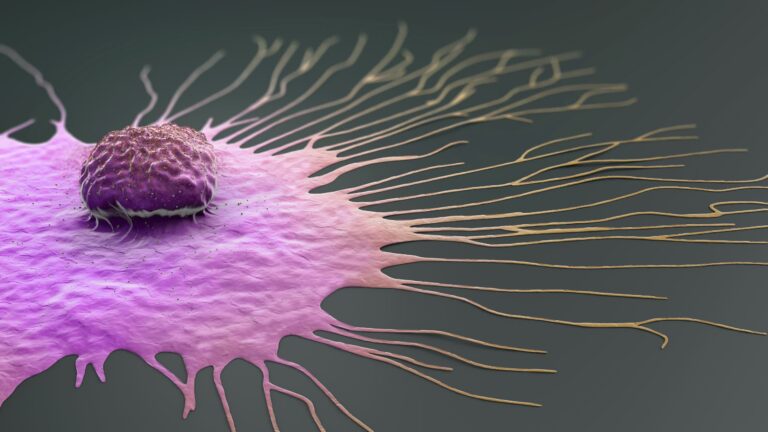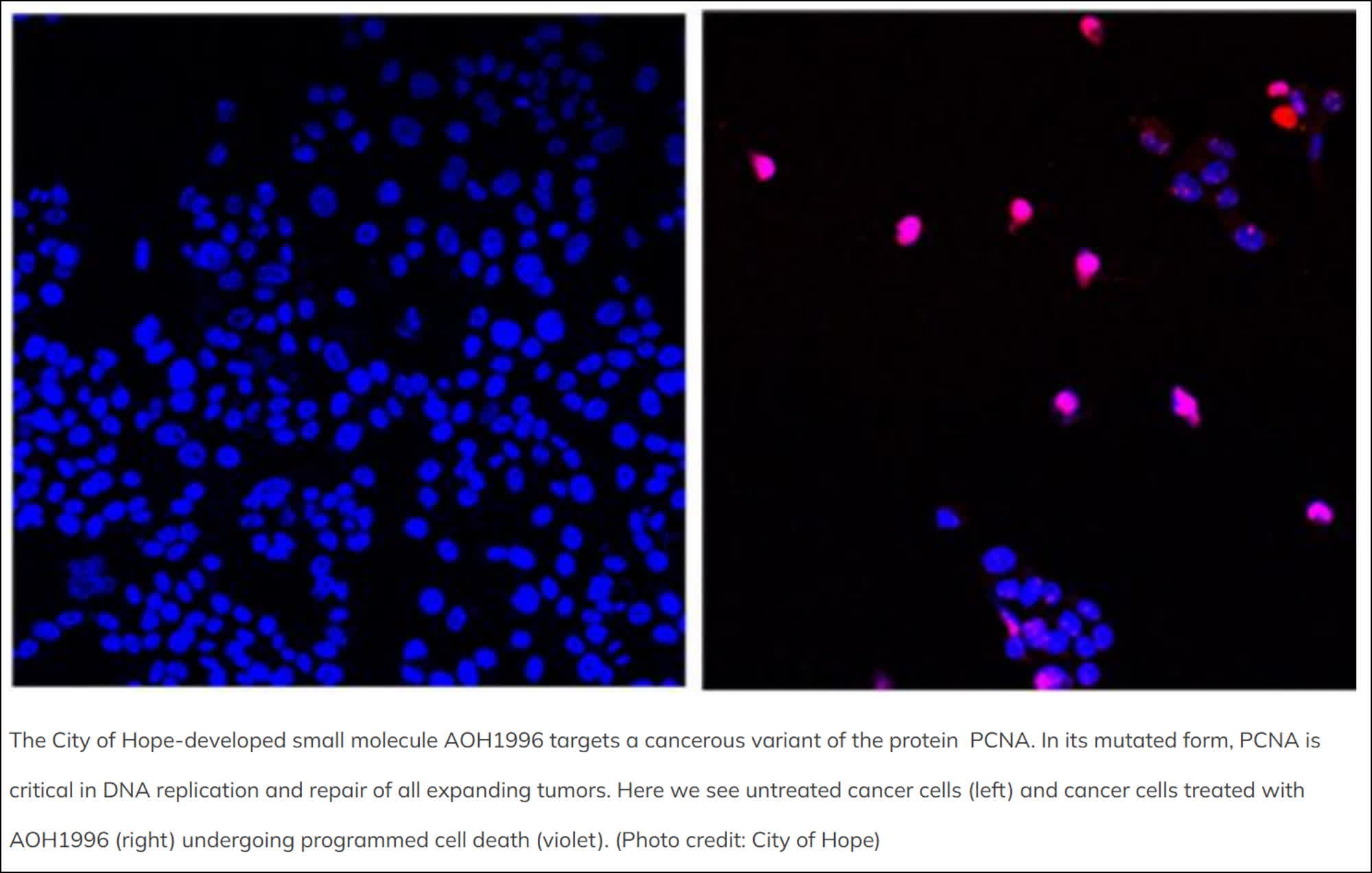
[ad_1]
Bottom line: A drug capable of effectively treating multiple cancer types would be one of the greatest medical innovations in history. Scientists at City of Hope have been working for years on something that could bring us very close to such a revolutionary breakthrough.
Professor Linda Malkas and other researchers at City of Hope have dedicated two decades to developing AOH1996, a potentially revolutionary drug that targets a crucial proliferation mechanism found in many types of solid tumors. Currently undergoing human clinical trials, this drug could prove to be a highly effective therapy against one of the most formidable diseases humanity has ever faced. It shows promise both as a standalone treatment and in combination with other chemotherapy drugs.
Malkas said that most therapies target a single pathway, enabling ‘wily’ cancer forms to mutate and eventually become drug-resistant. AOH1996 has been designed to target a cancerous variant of the proliferating cell nuclear antigen (PCNA), a protein that, in its mutated form, aids DNA replication and repair operations in all expanding tumors.
Professor Malkas likened PCNA to a “major airline terminal hub containing multiple plane gates,” and data suggests that cancers rely on a “uniquely” mutated form of the protein. Armed with this knowledge, researchers at City of Hope (a network of US research centers focused on life-threatening illnesses) have developed a therapy to specifically target that particular type of mutation.
AOH1996 is a small molecule PCNA inhibitor that prevents cells with damaged DNA from dividing and multiplying. During lab tests, the drug was effective in inducing apoptosis (cellular death) in cancer cells while avoiding interruption of the reproductive cycle in healthy stem cells.
The researchers tested AOH1996 in more than 70 cancer cell lines and several normal control cells, obtaining very promising results against cells derived from breast, prostate, brain, ovarian, cervical, skin, and lung cancers. In addition to influencing the PCNA mechanism, AOH1996 was also found to increase the susceptibility of cancer cells to chemical agents that cause DNA or chromosome damage.
In other words, AOH1996 could theoretically be used as a monotherapy or in combination with other potent chemotherapeutic drugs like cisplatin. According to Long Gu, the lead author of the study and City of Hope’s associate research professor, now that we have identified the problem area (damaged PCNA variant), we can further attempt to inhibit it and ‘dig deeper’ to gain a better understanding of the process.
Currently, AOH1996 is undergoing phase 1 clinical trials to study its efficacy and safety in human patients.
[ad_2]
